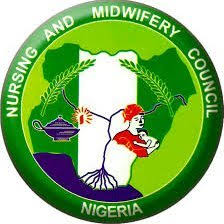A distressing saga unfolds at the Federal University, Oye-Ekiti (FUOYE), where the dreams of radiography students hang by a thread. Admitted in 2021, these pioneering students find themselves trapped in a bureaucratic nightmare, with their department still lacking accreditation four years later. This isn’t just a delay—it’s a betrayal of their future, and a glaring symptom of Nigeria’s crumbling education system.
The students’ plight, detailed in a heartfelt plea shared across X, paints a grim picture. Admitted with hope, they’ve endured online lectures, a nurse-led department, delayed exam results, and allegations of deliberate failures to extract resit fees. Their cries for help—directed at the Radiographers Registration Board of Nigeria (RRBN), the National Universities Commission (NUC), and even the Federal Ministry of Health—echo a broader crisis.
This isn’t an isolated incident. Reports from Nigeria Education News in 2025 highlight similar accreditation and resource woes in FUOYE’s Mass Communication department, suggesting a systemic rot. The RRBN, tasked under Decree 42 of 1987 with upholding radiography standards, seems powerless—or unwilling—to intervene as a nurse, not a radiographer, oversees the program. This professional mismatch, coupled with inadequate infrastructure, mocks the students’ sacrifices, including exorbitant fees paid under duress.
The government’s chronic underfunding of education—barely 5% of the 2025 budget, per The Conversation—exacerbates the issue. With only a fraction allocated to tertiary institutions, universities like FUOYE are left to fend for themselves, often at the expense of students. The Tertiary Education Trust Fund’s 2% education tax on corporate profits offers a lifeline, but it’s a drop in the bucket against the tide of neglect. Brain drain looms large as qualified graduates seek opportunities abroad, leaving Nigeria’s healthcare system starved of talent.
Yet, hope persists. The students’ resilience—organizing under hashtags like #Save_FUOYE_Rad_Students—signals a fight worth backing. Calls for action from educational bodies, tagged relentlessly on X, demand transparency and accountability. Vice-Chancellor Abayomi Fasina and Acting VC must heed this cry, while the NUC and RRBN must enforce standards, not just rubber-stamp them.
Nigeria stands at a crossroads. Will FUOYE’s radiography crisis be the wake-up call to overhaul a failing system, or will it deepen the chasm of despair? The answer lies in immediate action: accredit the program, replace unqualified leadership, and fund education adequately. Failure to act risks not just these students’ futures but the nation’s health and prosperity. The time for promises is over—results are non-negotiable.




